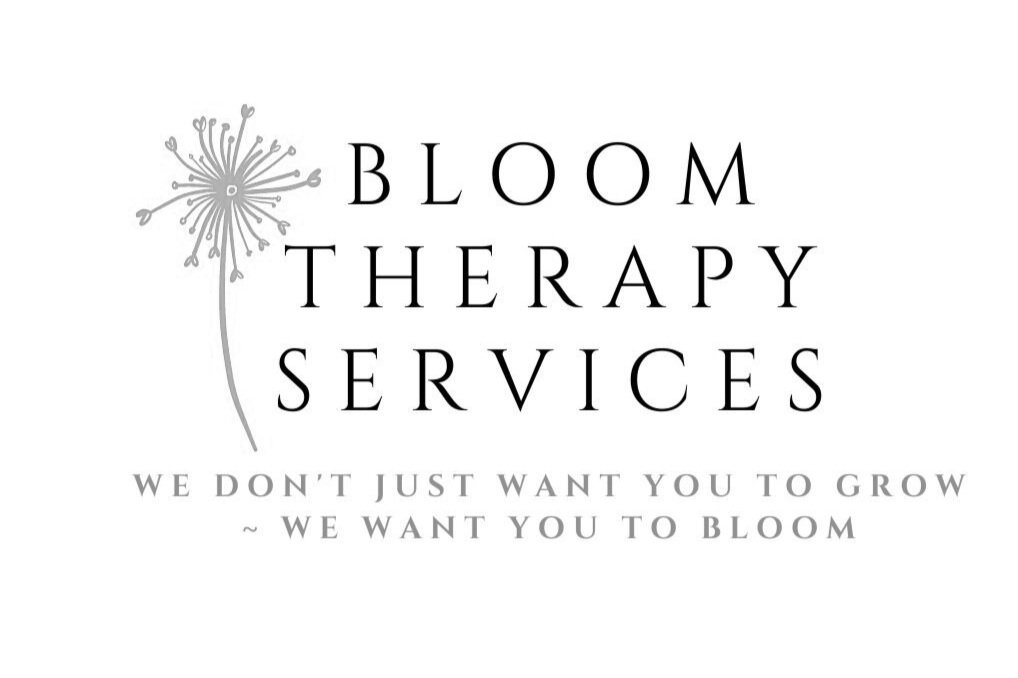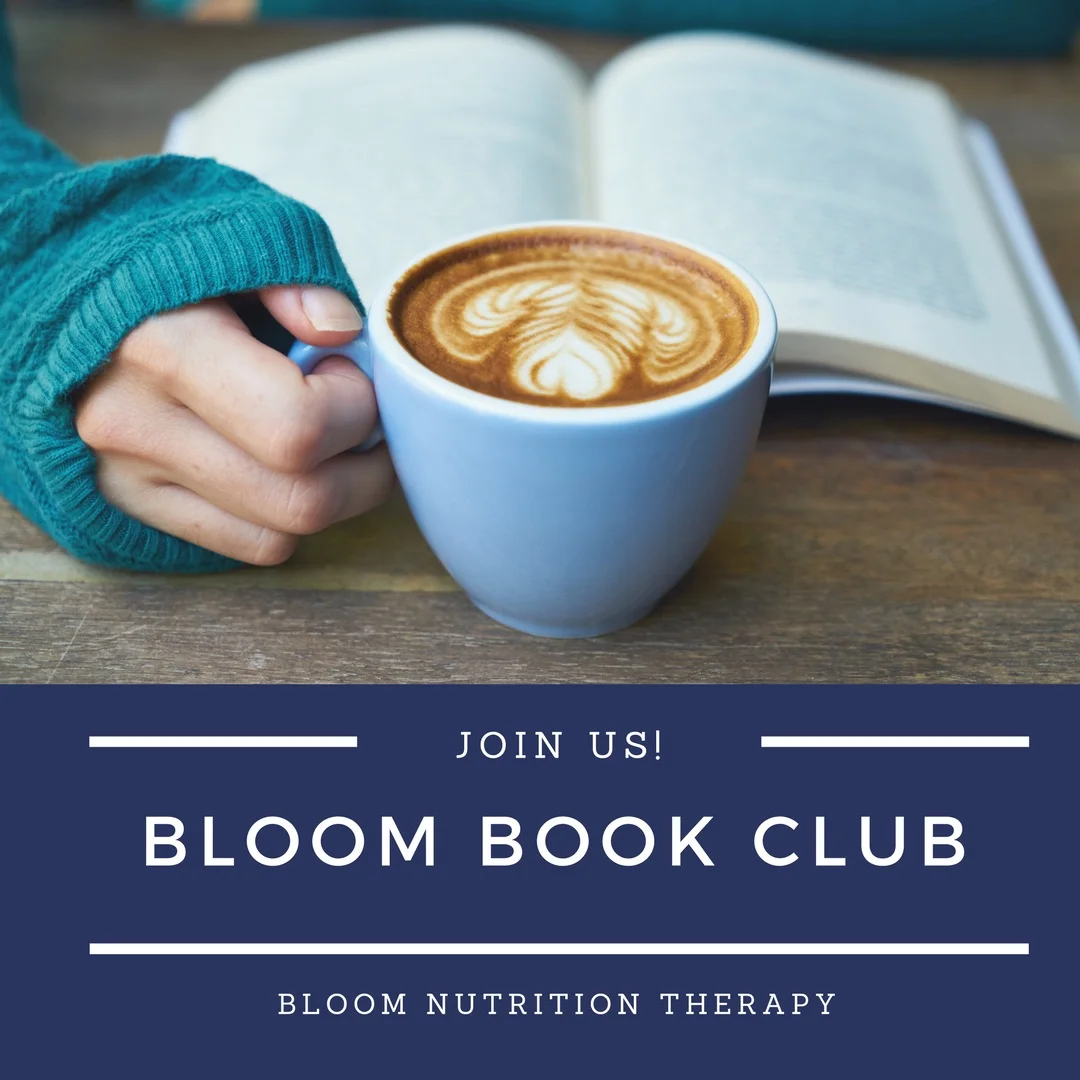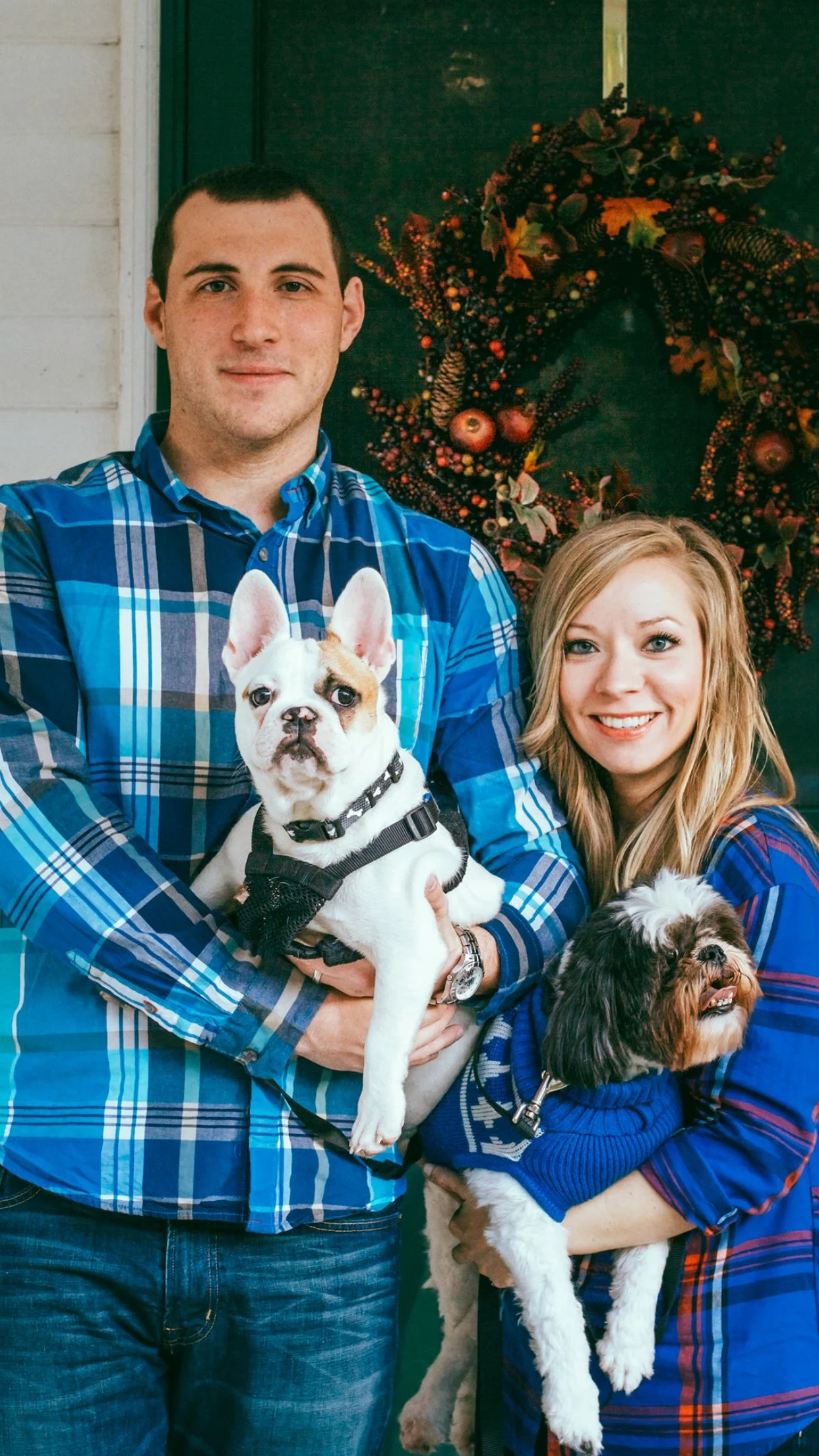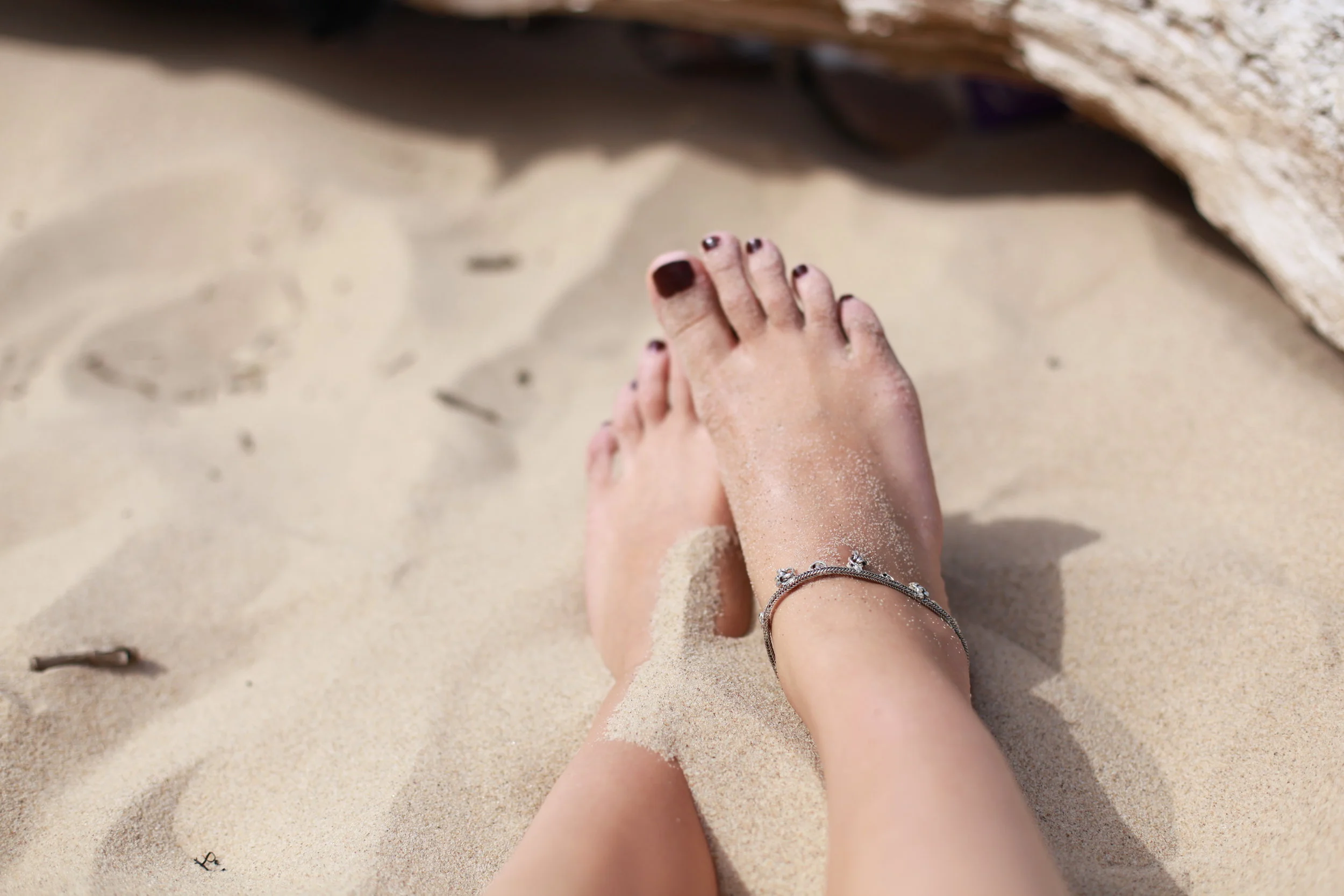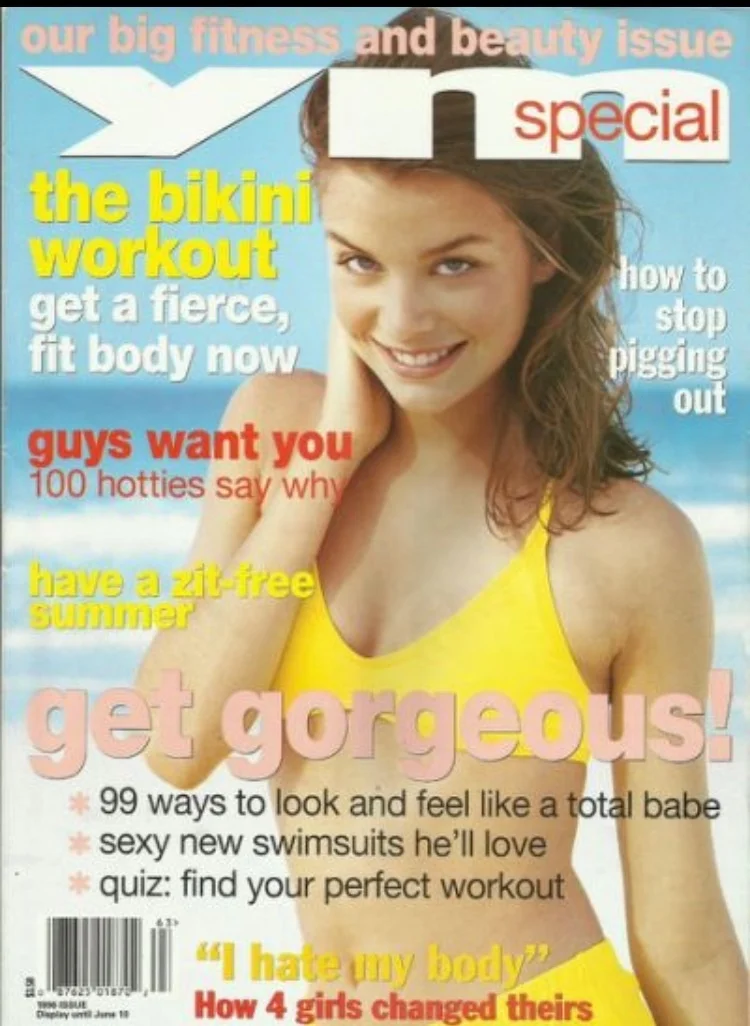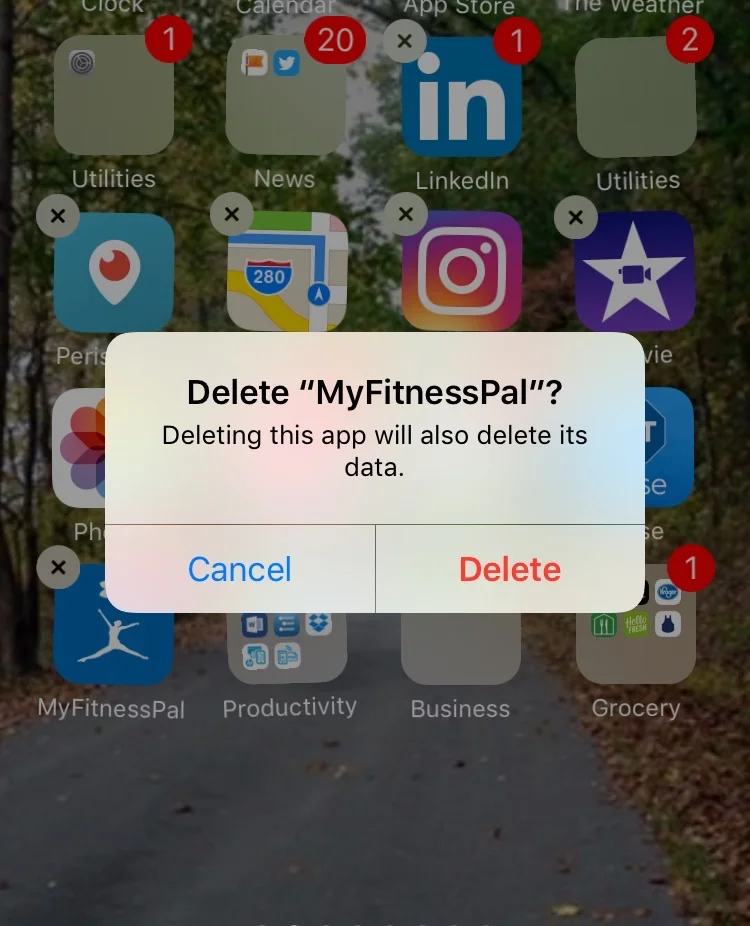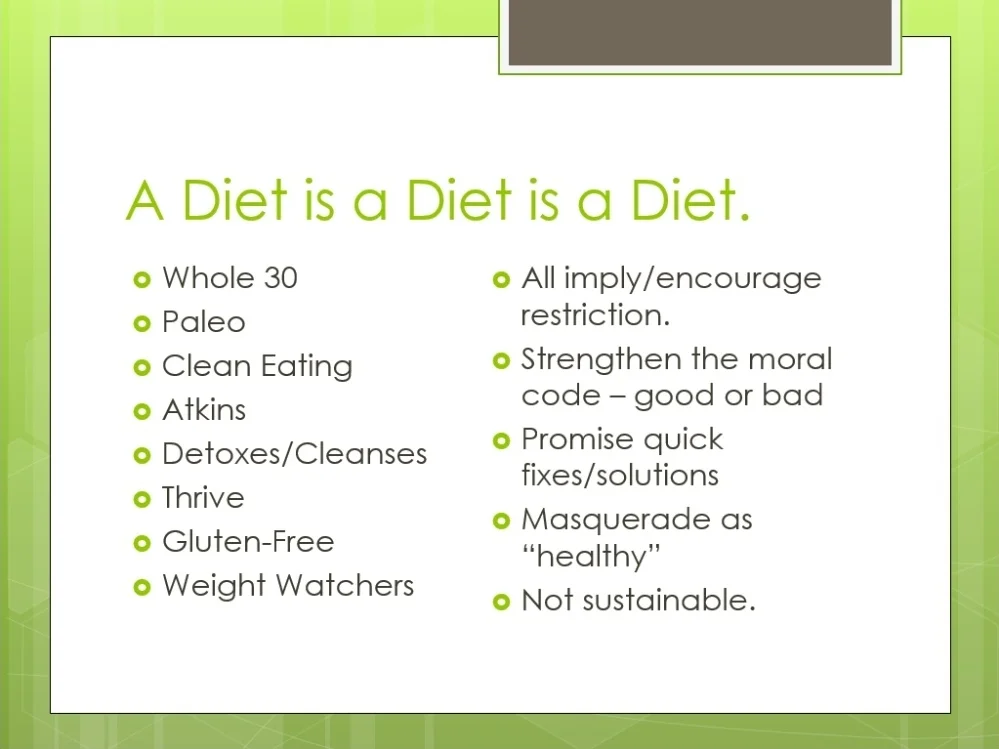Body Positive Influencers
People are shamed everyday for their weight and the way they look, and that is not right at all. Influencers all over the world have decided this stigma against plus-size creators should be put to a stop immediately. As the number of body positive creators rose, the better the social media environment gets.
Social media has always tried to fit people into a “box”. To get famous, you need to be “skinny” and have a perfect life. This idea has brought down the confidence of men and women for a long time. People are shamed everyday for their weight and the way they look, and that is not right at all. Influencers all over the world have decided this stigma against plus-size creators should be put to a stop immediately. As the number of body positive creators rose, the better the social media environment has gotten. In today’s blog, I have listed ten body positive creators on the social media platform Instagram that you should check out and follow!
#1 Mik Zazon (@mikzazon)
Mik Zazon is a 26 year old instagram influencer who has 1 million followers. She posts multiple times a week, and focuses on normalizing insecurities in women today.
#2 Michelle Elman (@michellelelman)
Elman is a 29 year old life coach, author, and influencer who has 245 thousand followers. She talks about many mental health topics and stigmas on her page.
#3 Anna Sweeney (@dietitiananna)
Anna is an eating counselor with 130 thousand followers. On her page, she posts about having healthy eating habits and exposing the harm of eating disorders.
#4 Neha Parulkar (@nehaparulkar)
Neha is a plus-size model and body positive influencer with 50 thousand followers. She posts about what it’s like to be a plus-size ethnic woman in today’s society.
#5 Kadeeja Sel Khan (@emeraldxbeauty)
Khan is an acne model and skin activist with 383 thousand followers. She is trying to normalize having acne and stop people from feeling ashamed of it.
#6 Claus Fleissner (@extra_inches_plussizeblog)
Fleissner is a plus-size model with 20 thousand followers. He uses his page to promote more plus-size representation in the fashion industry.
#7 Riccardo Onorato (@guyoverboard)
Onorato is a body-positive influencer with 81.7 thousand followers. He uses his page to show how men are pressured to conform to society’s beauty standards, and how he got through those pressures himself.
#8 Ryan Sheldon (@realryansheldon)
Sheldon is an influencer with 20.6 thousand followers. He talks about how he struggles with an eating disorder on his page, and also how he overcame it.
#9 Zach Miko (@zackmiko)
Miko was Target’s first plus-size model ever, and caused people to start talking about body inclusivity more because of his achievements.
#10 Kelvin Davis (@kelvindavis)
Davis is a body-positive influencer and model with 124 thousand followers. His page promotes self-love and acceptance of yourself and your body.
Resources :
Taylor Andrews (2021, March 3). Follow these 15 body positive activists for all the ~good Vibes~. Cosmopolitan. Retrieved October 6, 2022, from https://www.cosmopolitan.com/health-fitness/g13352390/body-positivity-instagram-accounts/
Wheeler, K. (2020, July 10). 11 male body confidence bloggers you need to follow now. Happiful Magazine. Retrieved October 6, 2022, from https://happiful.com/male-body-confidence-bloggers-to-follow/
Kylee Roberts, Mental Health Virtual Assistant
Co-Written by Amber Madden, LPCC-S
Bloom Book Club - Winter Selection
Bloom Book Club is a recovery community focused on reading and discussing books as they related to mental health wellness and recovery.
Bloom Book Club is a recovery community focused on reading and discussing books as they related to mental health wellness and recovery.
For our Winter selection, we'll be reading You Can Buy Happiness (and It’s Cheap) How One Woman Radically Simplified Her Life and How You Can, Too.
About the book…
Once, Tammy Strobel and her husband were living a normal middle-class lifestyle: driving two cars, commuting long distances, and living well beyond their means. Now they are living the voluntary downsizing — or smart-sizing — dream. In this book Strobel combines research on well-being with numerous real-world examples to offer practical inspiration. Her fresh take on our things, our work, and our relationships spells out micro-actions that anyone can take to step into a life that’s more conscious and connected, sustainable and sustaining, heartfelt and happy.
~~~~~~~~
A message from Amber ~
“I chose this title for our Winter selection because more than ever, I’m feeling like this year has been a time of reflection and introspection. We have all had our own challenges with 2020 and I know I am looking forward to new beginnings for 2021. However, this life of quiet isolation and being at home has definitely not passed me by as a special time. That said, I am looking for new ways to bring happiness into my life and one of the best ways is to live with less.” ~ Amber
Join Us!
Interested in becoming a Bloom Book Club member? We read a book every quarter with themes advocating Intuitive Eating, HAES, positive body image and more. Check out some of the benefits:
The Book Club includes:
LIVE discussions of the current selection members can attend as a group.
Action challenges and homework assignments emailed directly to you to help you implement the material of the reading.
The ability to vote and recommend upcoming selections.
A separate, private Facebook group with weekly discussions, live videos and lively debate about the current selection.
A way to improve your learning, continue your recovery and promote positive change without attending sessions or webinars.
You can join us for free or just $5 a month (billed annually).
Bloom Book Club - Summer Selection
Bloom Book Club is a recovery community focused on reading and discussing books as they related to eating disorder recovery.
For our Summer selection, we'll be reading Health at Every Size: The Surprising Truth About Your Weight, by Linda Bacon, Ph. D.
Bloom Book Club is a recovery community focused on reading and discussing books as they related to eating disorder recovery.
For our Summer selection, we'll be reading Health at Every Size: The Surprising Truth About Your Weight, by Linda Bacon, Ph. D.
Begins May 15! (but feel free to join in anytime)
The excerpt about the book from Amazon:
Fat isn’t the problem. Dieting is the problem. A society that rejects anyone whose body shape or size doesn’t match an impossible ideal is the problem. A medical establishment that equates “thin” with “healthy” is the problem.
The solution?
Health at Every Size.
Tune in to your body’s expert guidance. Find the joy in movement. Eat what you want, when you want, choosing pleasurable foods that help you to feel good. You too can feel great in your body right now—and Health at Every Size will show you how.
Health at Every Size has been scientifically proven to boost health and self-esteem. The program was evaluated in a government-funded academic study, its data published in well-respected scientific journals.
Updated with the latest scientific research and even more powerful messages, Health at Every Size is not a diet book, and after reading it, you will be convinced the best way to win the war against fat is to give up the fight.
Join Us!
Interested in becoming a Bloom Book Club member? We read a book every quarter with themes advocating Intuitive Eating, HAES, positive body image and more. Check out some of the benefits:
The Book Club includes:
LIVE discussions of the current selection members can attend as a group.
Action challenges and homework assignments emailed directly to you to help you implement the material of the reading.
The ability to vote and recommend upcoming selections.
A separate, private Facebook group with weekly discussions, live videos and lively debate about the current selection.
A way to improve your learning, continue your recovery and promote positive change without attending sessions or webinars.
For a limited time, you can get membership access to the Bloom Book Club fora LIFETIME for just $25.00. Click the link below to learn more.
Bloom Book Club: Body Respect
It's that time! The Bloom Book Club members have voted and our next quarter's read has been selected!
We'll be reading Body Respect: What Conventional Health Books Get Wrong, Leave Out, and Just Plain to Fail to Understand about Weight by Linda Bacon, Ph. D. and Lucy Aphramor, Ph. D.
It's that time! The Bloom Book Club members have voted and our next quarter's read has been selected!
We'll be reading Body Respect: What Conventional Health Books Get Wrong, Leave Out, and Just Plain to Fail to Understand about Weight by Linda Bacon, Ph. D. and Lucy Aphramor, Ph. D.
Begins April 15th! (but feel free to join in anytime)
The excerpt about the book from Amazon:
Weight loss is not the key to health, diet and exercise are not effective weight-loss strategies and fatness is not a death sentence.
You’ve heard it before: there’s a global health crisis, and, unless we make some changes, we’re in trouble. That much is true—but the epidemic is NOT obesity. The real crisis lies in the toxic stigma placed on certain bodies and the impact of living with inequality—not the numbers on a scale. In a mad dash to shrink our bodies, many of us get so caught up in searching for the perfect diet, exercise program, or surgical technique that we lose sight of our original goal: improved health and well-being. Popular methods for weight loss don’t get us there and lead many people to feel like failures when they can’t match unattainable body standards. It’s time for a cease-fire in the war against obesity.
Dr. Linda Bacon and Dr. Lucy Aphramor’s Body Respect debunks common myths about weight, including the misconceptions that BMI can accurately measure health, that fatness necessarily leads to disease, and that dieting will improve health. They also help make sense of how poverty and oppression—such as racism, homophobia, and classism—affect life opportunity, self-worth, and even influence metabolism.
Body insecurity is rampant, and it doesn’t have to be. It’s time to overcome our culture’s shame and distress about weight, to get real about inequalities and health, and to show every body respect.
Join Us!
Interested in becoming a Bloom Book Club member? We read a book every quarter with themes advocating Intuitive Eating, HAES, positive body image and more. Check out some of the benefits:
The Book Club includes:
- Tiered membership levels, including a FREE membership!
- Quarterly LIVE discussions of the current selection participants can attend as a group.
- Action challenges and homework assignments emailed directly to you to help you implement the material of the reading.
- The ability to vote and recommend upcoming selections.
- A written review of the quarterly selection.
- A separate, private Facebook group with weekly discussions, live videos and lively debate about the current selection.
- A way to improve your learning, continue your recovery and promote positive change without attending sessions or webinars.
Signup for your first quarter for just $5 or select the FREE membership option!
How One Magazine Changed My Life
I can remember wanting to buy all the magazine publications I could. I would inpatiently wait every month for new editions of my favorites to hit the stands. Teen, Seventeen, Glamour, Cosmogirl - I spent my allowance on all of them. What articles was I most interested in reading? Everything that had to do with diet, fitness and beauty.
In present day society, diet culture is everywhere you turn. Hundreds of television commercials advertising the latest beauty products and fitness brands, your favorite celebrities talking about what diet they're currently on and even the publications we read.
There are many reasons and ways one can be susceptible to disordered eating or an eating disorder. The factors which contribute to these issues are often multifaceted, meaning there are usually multiple factors. These factors include, but are not limited to: family pressures and dynamics, images portrayed by the media, experiences with peers throughout childhood, genetic predispositions, trauma, and more. We cannot always control for all of these factors. In fact, many are out of our control. However, I do believe we can work towards creating a more positive environment by creating personal boundaries.
When I was a pre-teen adolescent, verging on the entry of those dreaded middle school years, I was very susceptible to the influences of the diet and fitness industries. Like many young girls (and young boys) the puberty years are some of the toughest to endure because of all the bodily changes that take place.
During this time of my adolescence, I can remember wanting very much to change my appearance. Whether it was so boys would like me more or to fit in with my peers, I was desperate to learn everything I could about how to change my appearance to look more like what I was exposed to at the time. Magazine publications became a huge influence for me and how I would cultivate my identity, or at least what I thought my identity should be based on the messages I received.
I can remember wanting to buy all the magazine publications I could. I would inpatiently wait every month for new editions of my favorites to hit the stands. Teen, Seventeen, Glamour, Cosmogirl - I spent my allowance on all of them. What articles was I most interested in reading? Everything that had to do with diet, fitness and beauty.
The magazine industry is a multibillion dollar industry that bases all their earnings from the advertisers that support them. Flip through any given magazine and you're likely to find more than half of it is advertisements about beauty products, fitness brands and diet companies. Perhaps the most troubling aspect of these publications, is that many of them masquerade as a way to try and help and improve you. With headlines like, "Age proof your whole body," and, "Flat Belly Finally - Score Flat Abs," the headline sounds like it's trying to solve a problem you have, when in actuality, it's telling you that your body is the problem.
But that's how advertising works. It's a cycle. The magazine publication headlines and articles need to convince you that there is something wrong with you so that you will subscribe to wanting/trying to fix the "problem." To do so, you have to buy beauty products, diet supplies and fitness gear. And that's how they earn their money, because the advertisers pay the magazines to publish these articles convincing you to feel bad about yourself so that you will buy their products. (Mic drop.)
To this very day, I can remember a very specific issue of a magazine called YM. I can remember exactly what the cover looked like and most of the content of the magazine. I read this issue SO MANY TIMES that I practically had it memorized. This issue was their "Fitness and Beauty Special Edition" for that year and was riddled with hundreds of tips for "getting the body you want," and "finally getting thin." I soaked up all of these messages like a dry sponge. I read this magazine cover to cover so many times that the actual cover did eventually wear off. I read it so many times that even now, nearly twenty years later, I had no problem picking out the cover of the magazine from a Google image search.
Action Challenge
Looking back, these magazines did not teach me how to prioritize my health, but brainwashed me into having a diet mentality. As an adult, I am amazed even to this day how many of these magazines are still using these same tactics. Magazines that by the very title and definition should be helping you to achieve long-lasting health, have a very different motive entirely. One of the challenges we complete in my Break the Mold: Building Better Body Image course is to complete a Google image search of your favorite magazine publication. In this example here, we search for the popular Women's Health Magazine.
When I think of my health, I think of it as a part of myself that is comprised of many different aspects. There's my mental health, physical health, emotional health and my social health (how I relate with others). However, a quick Google search for the Women's Health Magazine blatantly demonstrates that the magazine's definition of "health" primarily focuses on appearance, NOT other important measurements of health.
What You Can Do
It is unlikely the magazine industry is going to read this post and make drastic changes overnight. After all, they are already aware of the damage they cause, but do little to make changes unless pressured by greater demands. For example, YM magazine acquired a new editor who boldly decided to stop publishing harmful articles and headlines for their magazine. Subsequently, advertisers began pulling their ads from the magazine. YM ceased publishing shortly thereafter.
It will not be enough for one editor to make the decision that these articles and advertisements are harmful. We will only see change once consumers begin spending their money in other industries other than beauty products and diet brands. Perhaps that begins with you. I challenge you to take a look at the publications, advertisements and other media avenues you subscribe to and ask whether or not the messages you are supporting are helpful or harmful to you and your values. We CAN make a choice to spend our money on things that bring us joy, peace and harmony with ourselves and our bodies. Instead of spending your money on the latest beauty trend or diet food, think about investing that money in a evergreen experience which will bring you joy for years to come, such as travel or relationships.
My hope for the future is that we see more and more of these publications respond by pulling advertising targeting towards beauty and diet brands. Instead, I believe if we (as women) demonstrate that we want to be valued for other reasons, then we will begin to see different features in the media. I, for one, would rather read about travel experiences, personal stories of growth and health articles that speak of health in the many different ways that are NOT related to weight or size.
Happy Thanksgiving!
I hope you and your family and loved ones have a WONDERFUL Thanksgiving holiday!
I hope you and your family and loved ones have a WONDERFUL Thanksgiving holiday!
Below is a round-up of many great posts for if you struggle with disordered eating, want to learn more about intuitive eating, or simply need some additional support through the holidays. I hope you find something that resonates!
Being Better to Your Fat Friend This Thanksgiving - Medium
Tips for Dealing wit Diet and Weight Talk Over the Holidays - Jennifer Rollin, MSW, LCSW
5 Tips to Have a Health Thanksgiving - Jessica Spiro Nutrition
How to Not Obsess Over Food During the Holidays - Robyn Nohling, RD, NP
The Holidays Aren't 100% Healthy - Robyn Nohling, RD, NP
Intuitive Eating Holiday Survival Guide - Emily Fonnesbeck, RD
The Day After a Holiday... - Emily Fonnesbeck, RD
Self Care During the Holidays - Rachel Hartley Nutrition
How to Have a Stress Free Holiday Eating Experience - Anne Mauney, RD
A Holiday Survival Guide for Sad People - Pinch of Yum
How to Feel Less Stressed Around Food During the Holidays - Robyn Nohling, RD, NP
Self Care and Saying No Through the Holidays
Sometimes, the best way to take care of yourself is to learn to say no. If you don't love the green beans and you're only eating them because you feel like some "food rule" has told you to eat all your veggies, or because they were there, then mark this as your freedom to say no. Instead, choose to eat items at the holiday meal that you truly love.
Since I was a small child, I remember the Thanksgiving and Christmas meals as always being a time when everyone would eat to past fullness. It was normal and common to fill the dinner plate to the brim and then go back for seconds...sometimes thirds. There have been many holidays in my past in which I can remember feeling sick afterwards, finding it necessary to even go lie down right after dinner to "sleep off" the meal.
Of course, there's nothing wrong with some over indulgence at the holiday meal time. Some may refer to this eat past fullness as a binge, but according to the DSM V and the diagnostic criteria for Binge Eating (link to archive blog), eating past fullness or eating more than others normally would only applies if it occurs in a situation in which others do not normally eat more than usual. In this case, the overeating behavior would not apply as a binge eating episode because it is normal for overeating to occur during the holiday season.
However, I can remember my father engaging in the holiday meal time very differently. My father suffered and still suffers occasionally with acid reflux, in which sometimes certain choices with food results in having a very negative reaction for his stomach and digestion. He learned that it was better for him to start saying no to eating past fullness. He practiced saying no at family gatherings if he knew he had already ate a satisfying meal. Though at times other family members initially questioned and were dismayed at his behavior, most learned to expect and respect his decision in his eating behaviors during the holiday meal. My dad was making the choice to eat for how he wanted to feel, an intuitive eating practice.
During the holiday season it is known and nearly expected to overeat. Many find it difficult to skip out on meal selections that perhaps, they wouldn't normally eat. For example, if you don't LOVE green beans, but perhaps you still feel compelled to put them on your holiday meal plate just because they're there. Some reasons might be because you want to "get in your vegetables" or because "they were there and so I thought I would eat them."
Another common mistake some make in intuitive eating at holiday time is eating items in order to make others happy. Many individuals are blessed with multiple family gatherings, sometimes back to back in the same day, where they feel obligated to eat at each get-together. Again, it's a cultural expectation to eat during the holiday season and many fear offending the host or the cook if they skip certain food selections or if they were to not eat altogether.
Sometimes, the best way to take care of yourself is to learn to say no. If you don't love the green beans and you're only eating them because you feel like some "food rule" has told you to eat all your veggies, or because they were there, then mark this as your freedom to say no. Instead, choose to eat items at the holiday meal that you truly love. For example, this time of year may be the only time you will be able to enjoy Grandma's apple pie. The pie is something you definitely want to make room for, so why take up some of that room with green beans you don't love and can have any time of year?
During the holiday season, there can be a lot of pressure to eat ALL THE FOODS because you don't want to offend the host or the cook. This could easily turn into a problem if you are going to multiple engagements and there are multiple hosts to please. Practice saying no in these circumstances. Sure, it's plausible someone might become slightly curious about why you're not eating, but remember that most individuals will be in the same boat as you, with multiple holiday gatherings to attend in which they won't feel hungry for. Just like the experience with my father, your family members will learn to expect and respect your choice to not overindulge.
All of this to say, listen to your body's cues this holiday season. The holiday meals ARE a time to indulge, celebrate and engage in fellowship with others which usually involves food. This time of year it is considered "normal" to eat past your fullness cues and it would not be considered problematic to do so. However, if you feel it is best for YOU to pick and choos what items or meals you plan to eat because ultimately you will physically feel better after eating, know that it is not selfish or bad manners to say no.
``````````````````````````````````````
BLACK FRIDAY SPECIAL
The Break the Mold: Building a Better Body Image Course is available for half price until 11/30/17. Click here to for more information about the course and to claim your special!
Resource Roundup - Support for ED Recovery
Some of my favorite eating disorder recovery resources I've seen from around the web during the past month and I wanted to share them here with you. I hope you find something inspiring, encouraging and something you love. :)
Some of my favorite eating disorder recovery resources I've seen from around the web during the past month and I wanted to share them here with you. I hope you find something inspiring, encouraging and something you love. :)
Articles
To The Person Who Isn't Sure If They Should Stop Dieting
Disproportionate and Rapid Weight Gain During Recovery
Physical and Mental Signs of Starvation in Anorexia
Can I Call Myself Fat If I'm Just Chubby?
Blogs
Can You Want To Change Your Body and Still Exercise Intuitively? - Thereallife-rd.com
Why I Won't Be Losing Weight For My Wedding - The Healthy Maven
Defining What Really Matters - Rachel Hartley Nutrition
If I Lived On An Island... (A Meditation for Body Acceptance)
One way to help individuals move towards body acceptance is to try and target who they would be without all the noise in their life. Who would they be without the pressure of the media, society, images, Instagram, peers, friends, family, etc.?
I often work with my Bloom clients on how to recognize the root of their diet motivation. Why do they want to diet? Why do they want to change their body?
One way to help individuals move towards body acceptance is to try and target who they would be without all the noise in their life. Who would they be without the pressure of the media, society, images, Instagram, peers, friends, family, etc.?
We conduct an exercise in guided visualization in which I instruct them to think deeply and patiently about each question and statement. This exercise is intended to help move towards body acceptance.
The visualization starts with a simple question:
If you lived on an island alone, who would you be?
Who would you be in your body? Who would you be around food?
This island is remote and there is no one else around. There is no one to see your body. There are no mirrors.
How do you feel about your body in this moment, on this island alone?
Are you thinking about what your body looks like?
Are you fully clothed? Wearing a bathing suit? Wearing nothing? How are you most comfortable in your body, on this island alone?
On this island, you’re also tasked with surviving. This may involve building a shelter, foraging for food and escaping from predators.
In what order does your body’s appearance fall in your list of priorities for living on this island alone?
What other areas of living take precedence? Why are they more or less important than your body’s appearance, on this island alone?
How do you want to nourish your body, on this island alone? What foods would you find satisfying on the island? What foods do you think your body would naturally crave in order to sustain living on the island?
What foods might you miss because they are unavailable on the island? What foods would you be okay with never having again?
On this island alone, how important is health? Exercise? Well-being? Peace of mind? Does your style of eating change based on these priorities?
On this island, if you were able to invite one or two people to join you, who could you invite that would NOT significantly alter this state of being, in your body, on this island? Who would you welcome in which you would feel it is unnecessary to change anything?
As you’re preparing to leave the island, think about what part of this experience you want to take back with you. How will you incorporate this into your everyday life?
I would love to hear your reactions and thoughts to this exercise. Feel free to answer any of the questions above in the comments below!
If this exercise really resonated with you, then I invite you to take a look at my online, course on body image, Break the Mold: Building Body Positivity, where we dive even deeper into the complexity of body image and food relationships.
Ongoing Support for Your Non-Diet Journey
Recovery work for body image and binge eating can be riddled with lots of up's and down's along the way. It will be helpful for you to have supportive resources to turn to in times you're feeling the struggle a bit more.
(This page is continously updated. Be sure to bookmark it and visit again!)
Recovery work for body image and binge eating can be riddled with lots of up's and down's along the way. It will be helpful for you to have supportive resources to turn to in times you're feeling the struggle a bit more.
Directions: Challenge yourself to engage DAILY for at least 20 - 30 minutes in some type of helpful resource outlet. Below you will find a list of different methods and outlets for resources.
Podcasts
The Food Psych Podcast - Chrissy Harreleson, RD
Nutrition Matters - Paige Smathers, RDN, CD
The BodyLove Project - Jessi Haggerty
Life. Unrestricted. - Meret Boxler
The Love, Food Podcast - Julie Duffy Dillon
Body Kindness - Rebeccas Scritchfield, RDN
Books
Intuitive Eating - Evelyn Tribole, MS, RD and Elyse Resch, MS, RD, FA, DA
Body Respect - Linda Bacon and Lucy Aphramor
Body Kindness - Rebecca Scritchfield
Health At Every Size: The Surprising Truth About Your Weight - Linda Bacon
Blogs
Immaeatthat.com - Kylie Mitchell, MPH, RDN
Thereallife-rd.com - Robyn Nohling, RD, NP
The Joy of Eating - Raychel Hartley, RD
Instagram Feeds
The Body Love Society - @thebodylovesociety
Beating Eating Disorders - @beatingeatingdisorders
Project HEAL - @projectheal
The Moderation Movement - @moderationmovement
Facebook Groups
Bloom Nutrition - Disordered Eating Support
Food Psych Podcast Listener Crew
Intuitive Eating Support Group
Dear Diet - A Journaling Activity
Dear Weight Watchers,
You were my first introduction into the dieting world. At only 12 years old, I was introduced to you SO YOUNG. Perhaps probably most messed up of all, was the fact that I didn't even join you because I wanted to lose weight, but because I wanted to be "in the club."
Below is a journaling activity we complete in Beat the Binge. I challenge you to write your own letter to your diet(s) and see what comes up.
Dear Weight Watchers,
You were my first introduction into the dieting world. At only 12 years old, I was introduced to you SO YOUNG. Perhaps probably most messed up of all, was the fact that I didn't even join you because I wanted to lose weight, but because I wanted to be "in the club." I wanted to be part of this adult world and feel included with my mom when she went to meetings. I wanted to "weigh-in" with others and feel like I belonged. However, the fun was over when I began having to take tuna fish sandwiches to school and watch my other friends eating their normal lunches. You set me up for my first experience binge eating when every week we would "celebrate" weigh-in day by going out to eat afterwards. Because I knew I would be faced with another week of tuna fish sandwiches, I would feel compelled to eat as much as possible during these meals. I remember I would leave feeling stuffed, sick and guilty for eating so much. Weight Watchers, you did nothing for my life but make me feel like being on a diet was a mandatory passage into adulthood.
Dear YM Magazine (and others)
This particular issue in this magazine became a "diet bible" for me. It introduced me to over 100 diet tips that became a way of eating for me. In addition, YM Magazine, your publications brainwashed me into believing I would never be loved, never feel like I belong and never find happiness unless my body looked a certain way.
YM Magazine Cover
Dear Suzanne Somers,
I found your diet book in a box of yard sale items in a family yard sale. I remember sitting down and reading it from cover to cover. Your weird diet of combining different food pairings had me taking the bread off my sandwiches at school some days and eating only the meat and cheese on others. Dear Ms. Somers, you were my first introduction to "fear foods" many of which I sometimes still feel slight discomfort when eating even today. For nearly 6 years, I avoided white pasta, white bread, potatoes, potato chips, white rice and even carrots, peas and corn.
Dear Food Rules,
I spent the better part of my college years not allowing myself to have an enjoyable meal more than once a week. I usually would "splurge" on breakfast once a week, and the rest of the week I would stick to strictly "healthy" items. In addition, I also only allowed myself to have one dessert a week and three cans of soda a week. My friends marveled at how disciplined I was, but you only provided a false sense of security. For any deviation from you, including going out with friends for pizza, would send my guilt into a downward spiral. I would then feel compelled to run miles and miles afterward. I missed out on so much of the college experience because of you.
Dear Calorie King
I can't even remember where I found your book, but I remember it was my first introduction into counting calories. After discovering your book I could no longer go out to eat without first methodically looking up each meal and item of food in the book to see if it "fit" into my daily calorie intake. Mr. Calorie King you sucked all the fun out of dining out and taught me an entirely new approach to obsessively controlling my food.
Dear Weird Hot Dog Diet,
My coworkers first introduced me to you and I thought you sounded silly, but then I witnessed them losing weight. It sounded disgusting that I was to subsist on hotdogs, tuna fish, bananas, eggs and other weird items. But I gave you a try anyway. Dear Weird Hot Dog Diet you did nothing but make me hate feeding myself for a total of about 2 weeks. I definitely did not look forward to meal time during this 2 weeks, but maybe that was the point.
Dear MyFitness Pal,
When I first discovered you, I thought you were the greatest thing to have happened in my "health" journey. When I first computed my goals into your system, you told me I needed to eat 1100 calories a day to reach them. I began eating this amount calories and did in fact lose a considerable amount of weight. However, I also lost energy, became hyper focused on food because my body was actually slowly starving. Over time, my body adjusted to this low calorie intake and began to actually start gaining weight, despite the low calorie intake. I became more and more focused on you and more and more depressed and confused that I didn't understand why you were no longer working. Over time, this low calorie intake caused many other physiological responses in my body, including depression, loss of my cycle and even hair loss. Dear MyFitness Pal, I understand you are useful for some, but for me you're just another diet that causes me to feel crazy around food.
Dear "Clean Eating"
Once again I was fooled into thinking this was THEY way to be eating and the epitomy of health. Your philosophy of avoiding all foods that were processed and not naturally from the Earth were somehow evil to my body. You convinced me that foods such as chocolate, cheese and even cereal should be avoided. I believe you masquerade as healthy, but you're actually just another diet. You imply restriction and define the moral code of "good" and "bad" foods.
Dear Intermittent Fasting,
You almost had me again. After reading some "research" that seemed to indicate you might, indeed, be the solution to weight loss I believed that maybe I should give you a try. In order to make you work it meant giving up my favorite meal of the day, breakfast. I would spend the better half of the morning tired and lethargic because I had no energy from not eating anything. After the designated window of eating time opened, I would be so starved that I would sometimes overeat at lunchtime, which would leave me feeling stuffed, sick and leave my stomach upset for the rest of the day.
Dear Atkins,
You came into my life during a time when I was really trying to work on not dieting. However, after witnessing and overhearing my coworkers having success from following your plan, I almost decided to try you, too. I felt more and more confused about your way of eating because how could vegetables ever be considered "bad" for you. But on your plan I was only "allowed" so many ounces of vegetables on meals. On another note, I was to exist on literally no carbohydrates, an important source of energy for any human body to live on. I hated how I was having to focus on every meal and it seemed like I was having to relearn how to eat, when eating should be a natural thing.
Dear MyFitness Pal,
You continued to lurk in the background during my visits with the diets in between. I have spent years having an affair with you from the other diets. When I was engaging in another diet, you were always there in the background, whispering to me and telling me lies like, You know I worked before, I can work again. You know you've been eating more than 1200 calories on some days. You know this is the REAL reason you haven't lost weight. You know if you just would focus on every little item and put it into the plan it would work. MyFitnessPal, I finally decided to get rid of you once and for all and delete you from my phone. You bring me nothing but constant reminders of a time that I have moved away from now because I'm doing something different.
My Fitness Pal Delete Screen
Dear Diets, All of You,
You have been there overshadowing some of the most important moments in my life. No matter how happy of occasion or amazing it should've been, you've been there to partly ruin it. Dear Diets you suck. And you do nothing but suck the joy out of my life. No. More.
Different Types of Diets - From Break the Mold Course
What would you say to your diet(s)?
If this type of post resonates with you, then I invite you to check out my online courses Break the Mold: Building Body Positivity or Beat the Binge.
